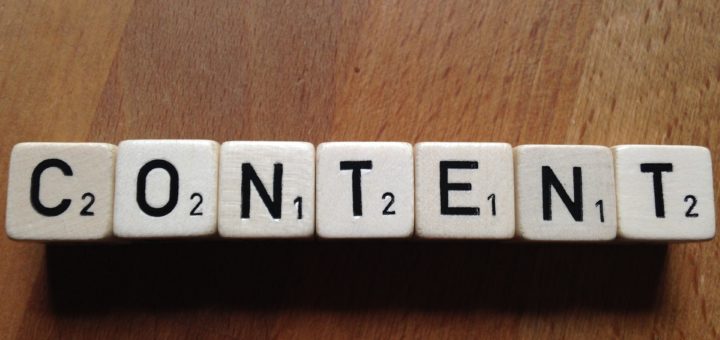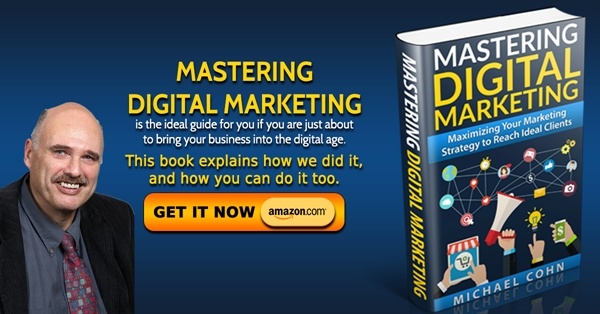Ensuring that You Own Your Content’s Copyright

You have been a prolific writer for your business for a long time and, of course, just like all other writers, you use sources to back up the facts that you write in your content. Of course, there is no reason for you to assume anything other than the fact that you own the copyright of all of the content that you are writing.
Sometimes the line is obscured
If you own the copyright on specific content (including graphics, videos, etc), that means that you can do anything that you wish with that content. After all, it belongs to you. On the other hand, if someone else owns the copyright on the content, you are severely limited from doing what you want with that content. That means that you can’t recycle the content and use it over and over again, you can allow other people to post the content on their websites (for increased exposure and a wider reach), and you can’t touch the images (making them smaller, larger, wider, narrower). Your hands are tied in that case. However, you may not always understand when it is appropriate (legally and ethically) to alter the content in any way and when you really need to be hands off.
You probably have an accurate sense that you can’t just find a graphic image online, copy it, and embed it in your content. That is just common sense. If you use any portion of someone else’s content (words), you probably realize that you must give the author credit for what he or she has written. However, the copyright goes far beyond that. It is extremely important for you to understand the basics of copyright and how that applies to you and to your business. If you don’t pay attention to what you are allowed and not allowed to do, you may get yourself into trouble (legally and financially speaking). There are some concepts that will benefit you if you at least have a working knowledge of them. Hopefully, they will not actually apply to you at any time but being aware is very important for you.
-
Have a licensing agreement, including an invoice: That is an invoice from the person who owns the copyright. If you plan to use material of which someone else owns the copyright, you will probably need to pay that person (or that entity) some money. There may be rare occasions in which the person or entity will not charge you money but you need to have a written agreement between you so that you don’t get into trouble.
-
Lawsuit as a result of copyright infringement: This is a lawsuit that occurs in a federal court. The person or entity doing the suing is the owner of the copyright. The lawsuit will make demands, such as your eliminating all of the copyrighted material from wherever you have posted it online. You will also (most likely) be expected to pay some amount of money (damages) and there is also the potential that you will be asked to pay the lawyers’ fees.
-
Cease-and-desist communication: This is a communication (usually in the form of a letter) from the person who owns the copyright telling you that you must delete their content from wherever you have posted it.
-
Digital Millennium Copyright Act takedown notice: This is a notice that refers to the act on behalf of the copyright owner. It is sent to your web hosting service. It will insist that your web hosting service disables any access to wherever the copyrighted content appears.
The disturbing thing about this situation is that, depending on the whim of the copyright owner, you may end up paying in any number of ways. It might be minor but it might be major as well. You may be notified of the copyright violation in stages. If you respond immediately after you receive the first notice, you may get lucky and after doing whatever is demanded of you, that will be the end of it, as long as you never do it again. However, if you continue, the consequences will probably get more and more severe. You will need to tread lightly in this situation and do whatever you need to do quickly if you want to escape relatively unscathed.
Educate yourself about your rights
When you first write a piece of content, you need to make sure that you take all measures to ensure that you never run into these types of problems that are described above. If you don’t happen to be the one creating the content, you need to make sure that you get the other person to assign copyright ownership to you. It is critical that you have it in writing. The best thing to do is to have a written contract between you and the other person. Hopefully, in that case, there will be no question about anything. If you want the creator to be able to benefit from the content, it is safest to put that into the contract as well. The sorts of things that you will want to put into the contract are: exactly what is being created, how revisions are handled, deadlines and consequences if those deadlines are not met, the payment schedule, who will own the copyright, and who will be responsible for the consequences if the copyright is violated. If you have a long-term relationship with that person, you will probably find that you will need to revise your contract over time.
Conclusion
Copyright ownership may not have been something that you thought about very often (or at all); however, you need to have it in mind all of the time and be cognizant of doing the right thing. If you don’t, the consequences will probably not be pleasant. You need to protect your reputation and your bank account at all times. Copyright laws are very complicated and you may not even realize that you are violating any of those laws. However, you need to be aware of what you are doing and make sure that you don’t continue to violate any copyright laws. Interestingly, there are a few situations in which you don’t need to get permission from the copyright owner of the content. You should do the research and determine when those rules apply, which will ease the burden a little bit. Undoubtedly, you were not aware that you were doing anything wrong. However, once you are aware, you need to make sure that you do everything by the book.
We are pleased to provide you with the insightful comments contained herein. For a complimentary assessment of your online presence, let’s have coffee.

|



